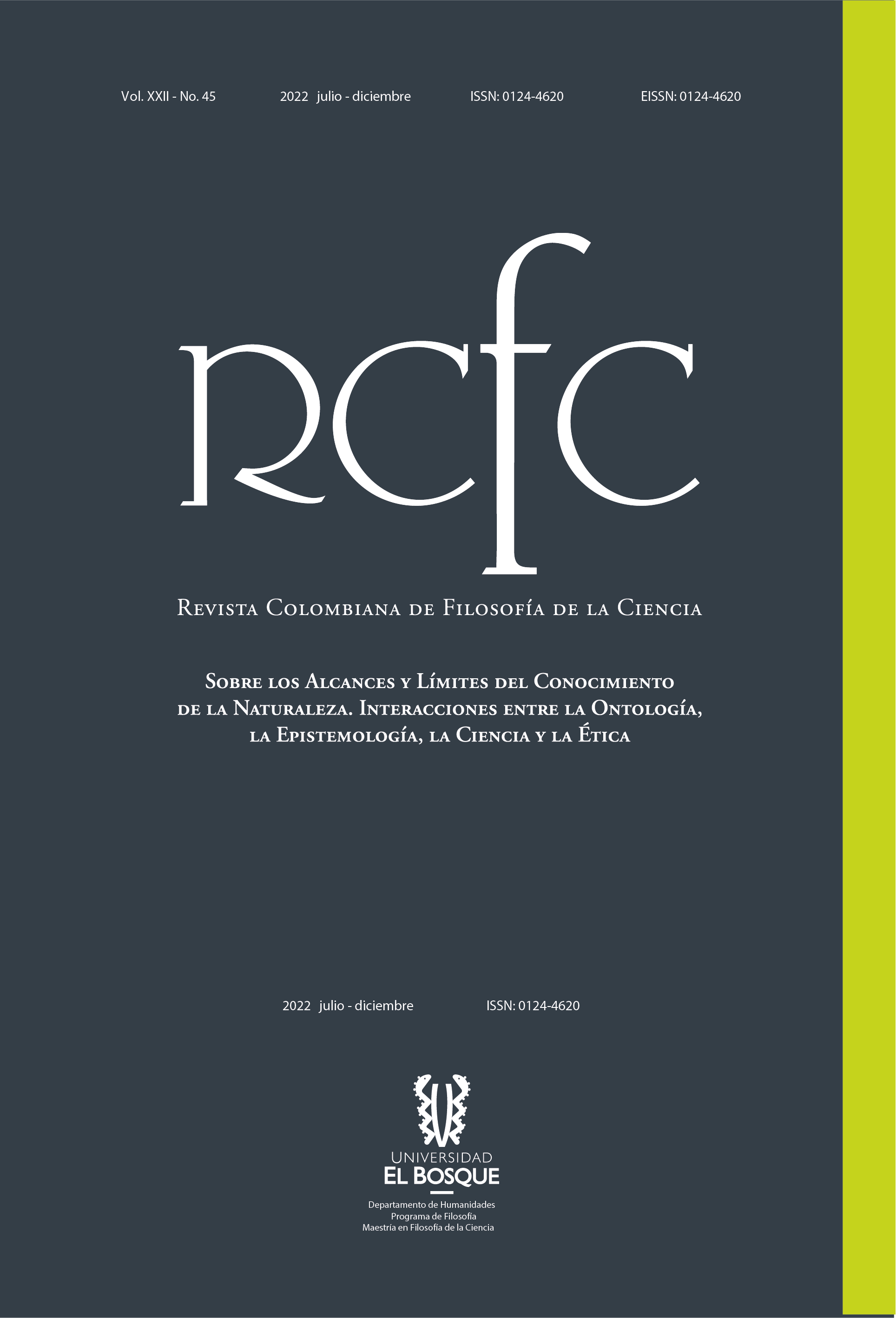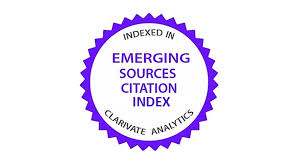Ralph Cudworth
: Between Plato’s Plausible Conjecture and the Meanings of Hypothesis in Natural Philosophy
DOI:
https://doi.org/10.18270/rcfc.v22i45.3953Keywords:
hypothesis, plausible conjecture, natural philosophy, anticipatory power of the mind, metaphysics- ethics relationship.Abstract
This work reconstructs the sense of hypothesis in the philosophy of Ralph Cudworth, through the analysis of its platonic bases, specifically, the stipulation of the strata of knowledge exposed in the Allegory of the line of Book VI of Republic and the distinction between objects and disciplines of knowledge established in Plato's Timaeus. In this way, I consider that two meanings of 'hypothesis' in Cudworth can be understood from the delimitation of its functions as 1) type of explanation due to its onto-epistemological status and 2) methodological strategy of inquiry about the functioning of the natural world, senses, which can be inferred from the influence of what is called in this work as 'plausible conjecture' for Plato, which also allows us to appreciate the relationship between metaphysics, the new science and morality in the Seventeenth Century.
Downloads
References
Benson, Hugh H. “Plato’s philosophical method in the Republic: The Divided Line (510b–511d)”. Plato’s Republic’: A critical guide, editado por Marc L. McPherran, Cambridge University Press, 2010. 188-208.
Berzins McCoy, Marina. Image and argument in Plato’s Republic. SUNY Press, 2020.
Cassirer, Ernst. La rinacenza platonica in Inghilterra e la Scuola di Cambridge. Traducido por Roberto Salvini, Firenze, La nuova Italia Editrice, 1964.
Cudworth, Ralph. The philosophical works of Ralph Cudworth. Vol. 1. The true intellectual system of the universe. Oxford, Talboys, 1829.
______. Treatise concerning an immutable and eternal morality. With a Treatise of Free Will editado por Sarah Hutton. Cambridge University Press, 1996 [1731].
Dear, Peter. “Extra-curricular activities: new homes for natural knowledge”. Revolutionizing the sciences. European knowledge and its ambitions 1500-1700. Wales, Palgrave, 2001. 101-130.
______. “Experiment: how to learn things about nature in the seventeeth century”. Revolutionizing the sciences. European knowledge and its ambitions 1500-1700. Wales, Palgrave, 2001. 131-148.
Ducheyne, Steffen. “The status of theories and hypothesis”. The Oxford handbook of British philosophy in the seventeenth century, editado por Peter R. Anstey, Oxford University Press, 2013. 170-191.
Hutton, Sarah. “From Philosophy to science. Natural philosophy of Boyle, Newton and others”. British philosophy in the seventeenth century. Oxford University Press, 2015. 160-184.
______. “La bondad viviente y el alma auto-determinante: la filosofía moral de los platónicos de Cambridge”. Claves del platonismo en la modernidad temprana. Metafísica, ciencia, ética, epistemología e historiografía, coordinado por Laura Benítez Grobet, Leonel Toledo Marín y Alejandra Velázquez Zaragoza, UNAM, 2017. 201-2017.
Mackinnon, Flora Isabel. Introduction. Philosophical writtings of Henry More. Edited with introduction and notes by Flora I. Mackinonn. Oxford: Oxford University Press, 1925. IX-XXVII.
More, Henry. An account of virtue. London: Printed for Benjamin Tooke. 1690
______. Immortality of the soul. Editado por Alexander Jacob, Dordrecht, Kluwer Academic Publishers, 1987.
Platón. República. Introducción, traducción y notas de Conrado Eggers Lan. Madrid: Gredos, 2000.
______. Timeo. Introducciones, traducciones y notas de María de los Ángeles Durán y Francisco Lisi, Madrid, Gredos, 2000.
Popkin, Richard. The third force in seventeenth-century thought. Leiden/Köln, N.Y. Kovenhavn/E. J. Brill, 1992.
Scheneewind, Jerome Borges. La invención de la autonomía. Una historia de la filosofía moral moderna. Traducción de Jesús Héctor Ruíz Rivas, Ciudad de México, Fondo de Cultura Económica, 2009.
Strok, Natalia. “Un monstruo con cuatro cabezas que se devoran entre sí: materialismo y naturaleza plástica en Ralph Cudworth.” Revista De Filosofía DIÁNOIA 64.83 (2019): 209–227. <https://doi.org/10.22201/iifs.18704913e.2019.83.1593>
______. “Ralph Cudworth y una relación distinta entre cuerpo y alma en el siglo XVII”. Filósofas y filósofos de la modernidad: nuevas perspectivas y materiales para el estudio, coordinado por S. Manzo, Universidad Nacional de La Plata/EDULP, 2022, pp. 144-153.
Taliaferro, Charles., y Teply, Allison. Cambridge Platonism spirituality. Nueva Jersey, Paulist Press, 2004.
Downloads
Published
How to Cite
Issue
Section
License

This work is licensed under a Creative Commons Attribution-NonCommercial-NoDerivatives 4.0 International License.

| Article metrics | |
|---|---|
| Abstract views | |
| Galley vies | |
| PDF Views | |
| HTML views | |
| Other views | |











